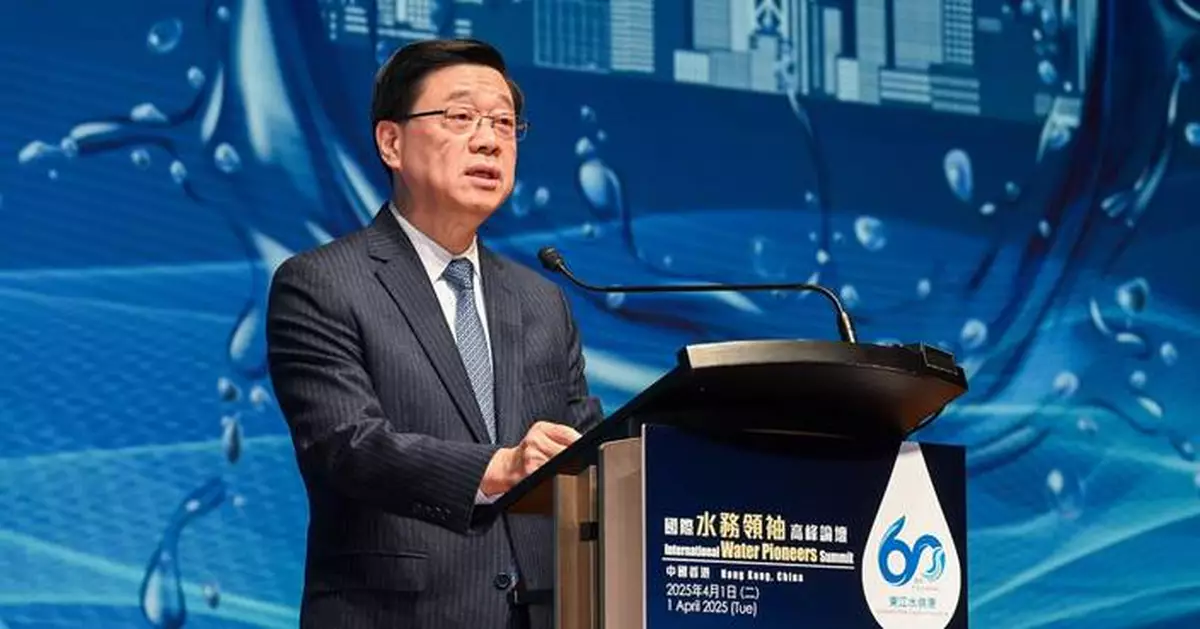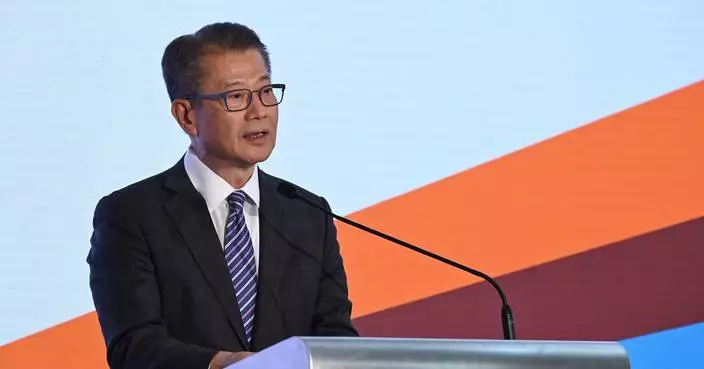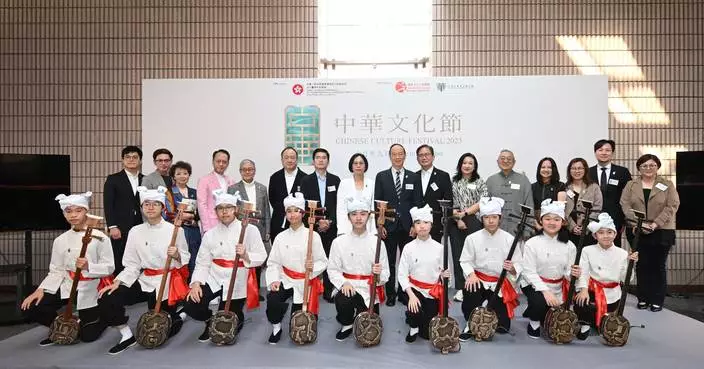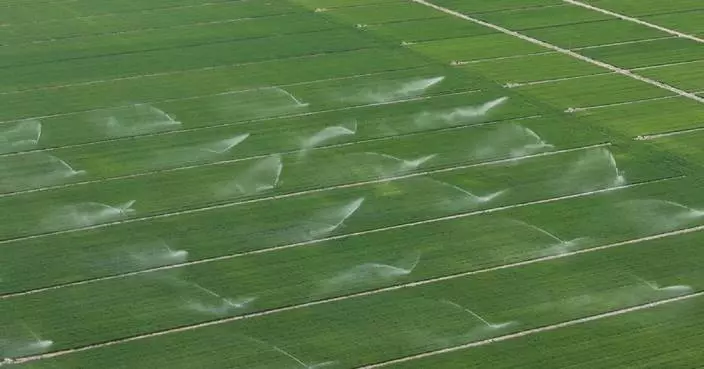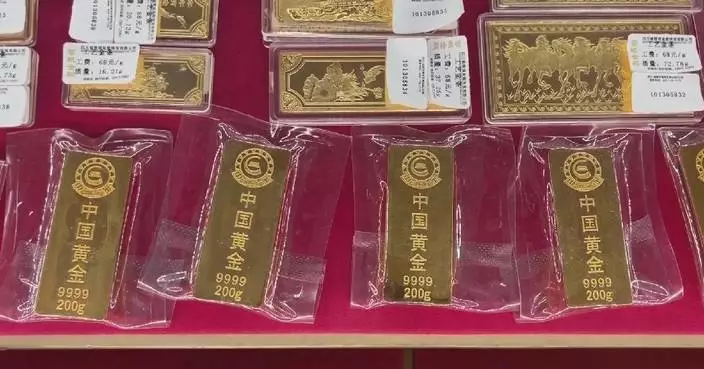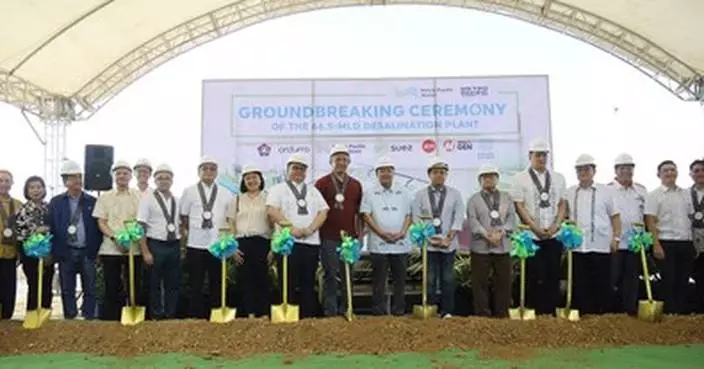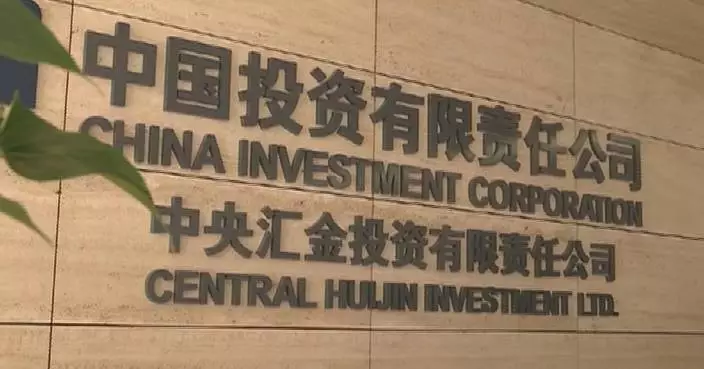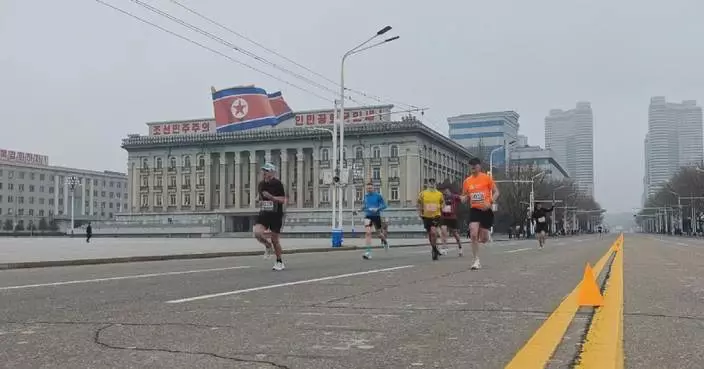Speech by CE at International Water Pioneers Summit (with photos/video)
Following is the speech by the Chief Executive, Mr John Lee, at International Water Pioneers Summit today (April 1):
Honourable Li Guoying, Minister of Ministry of Water Resources, Honourable Wang Weizhong, Governor of Guangdong Province, Honourable Zheng Yanxiong, Director of the Liaison Office of the Central People's Government in the Hong Kong Special Administrative Region, Honourable Xiang Bin, Member of the Office Leadership of the Hong Kong and Macao Work Office of the Communist Party of China Central Committee, distinguished guests, ladies and gentlemen,
Good morning. I am pleased to join you today for the opening of the International Water Pioneers Summit. Gathered here are nearly 400 high-profile professionals and senior government officials from Hong Kong, Mainland China, Asia and around the world. Present here to celebrate the 60th anniversary of Dongjiang's water supply to Hong Kong, and to work together to ensure a sustainable water supply for us all.
Hong Kong's water story is one of transformation, illustrating how a city with limited water resource, can turn geographic and resource limitations, into engineering triumphs.
Hong Kong's water story is also one of deep and abiding ties. Because without the strong bonds and blood relation between Hong Kong and the Mainland, the engineering, and the water it made possible, would not have taken place. Certainly not in the 1960s.
As for the engineering, the main challenge was geography. Dongjiang is more than 50 kilometres away from Hong Kong. That meant building an 83-kilometre water channel, crossing half a dozen mountains. The water had to be lifted, via multi-stage pumping stations, from two metres above sea level to 46 metres at the highest point.
And the project was completed in less than one year. At 4pm on the 1st of March 60 years ago, the supply of Dongjiang water to Hong Kong began.
For the past six decades, Dongjiang has provided 70 to 80 per cent of the water needed by Hong Kong.
And the engineering feats continued. Because of our increasing demand for water, the Dongjiang-Shenzhen Water Supply Scheme, as it is presently known, was expanded three times from the 1970s to the 1990s. It was improved again in the early 2000s. These raised Hong Kong's annual water supply ceiling from the original 68.2 million cubic metres, to today's 820 million cubic metres, a rise of 12 times.
We are eternally grateful for the enormous commitment, and technical ingenuity, by the country and all our compatriots involved.
We like Dongjiang water. For good reasons. It meets the highest national standard for surface water used for human consumption. No less essential, it continues to flow, fuelling Hong Kong's economic miracle, supporting our economy and community, while helping to ensure our city's sustainable development and long-term prosperity.
The theme of this Summit is "Smart Water, High-Quality Development". That tells me that if we want to ensure a sustainable water supply, we need to invest in its future, and do it innovatively.
Hong Kong has long been recognised for its infrastructure prowess. Indeed, Hong Kong's infrastructure was ranked among the top 10, globally, in the World Competitiveness Yearbook last year.
Our major water supply projects include High Island Reservoir, Hong Kong's largest reservoir, and the Tseung Kwan O Desalination Plant, the first waterworks in Hong Kong to adopt advanced reverse osmosis desalination technology.
As an international centre of innovation and technology, we are keen on applying I&T to water management. Last year, we set up a Digital Water Office to drive the digitalisation of our water supply services.
The Office promotes the use of smart devices, digital twin technology and artificial intelligence, to gradually gain full automation of operations in our waterworks installations.
Innovation in infrastructure development will power our water-secure future. Our goal is to establish Hong Kong as an international infrastructure centre, that serves our city and China, our country.
Speaking of our country, let me add that it has built numerous water conservancy projects. And I'm sure you'll hear more about them in today's Summit.
I am grateful to the organisers of today's International Water Pioneers Summit. Grateful, too, to our distinguished speakers and moderators, here in Hong Kong from all over the world.
While you're here, I invite you to take full advantage of all that Hong Kong has to offer, in arts and culture. You can start right here, in West Kowloon Cultural District, Hong Kong's largest arts development.
Ladies and gentlemen, I wish you all a rewarding summit and an enjoyable and memorable stay in Hong Kong.
Thank you.
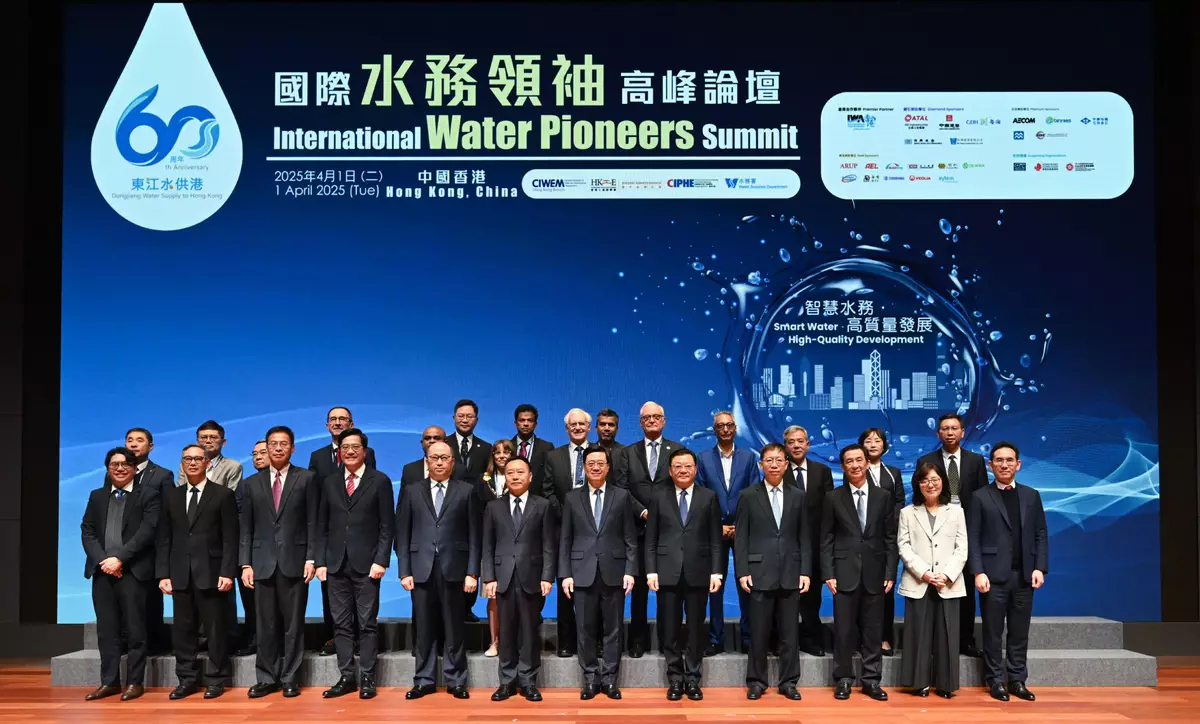
Speech by CE at International Water Pioneers Summit Source: HKSAR Government Press Releases
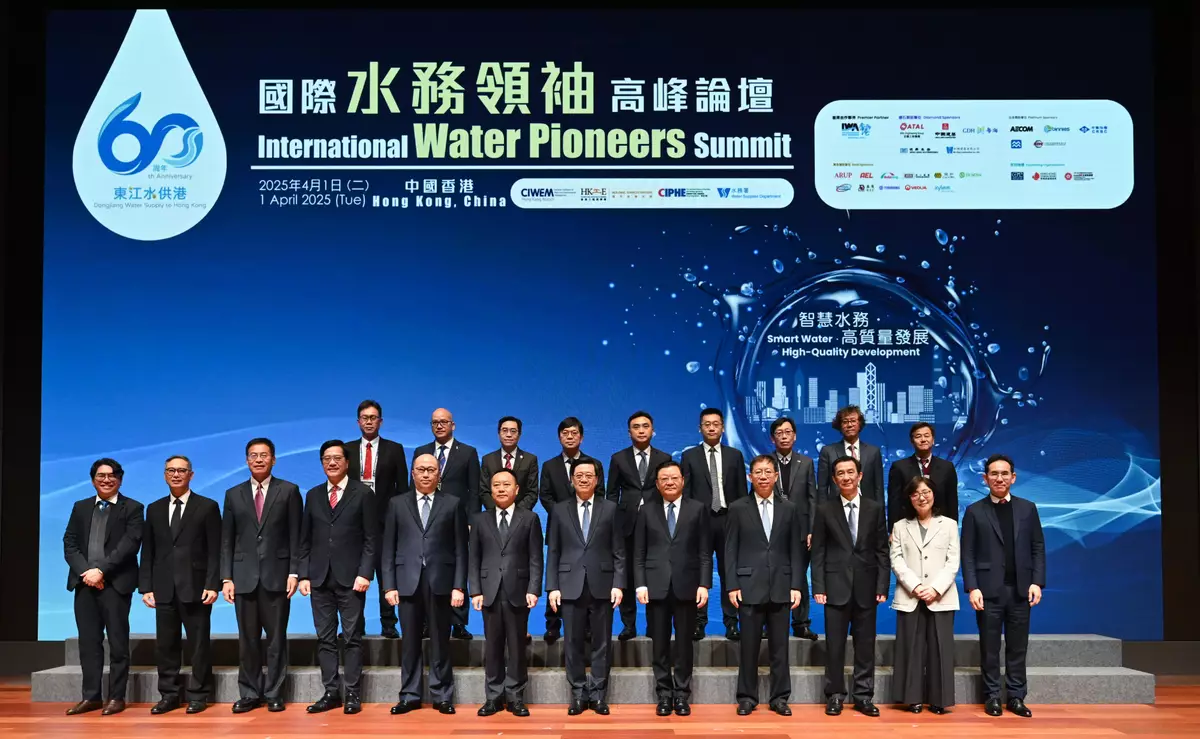
Speech by CE at International Water Pioneers Summit Source: HKSAR Government Press Releases
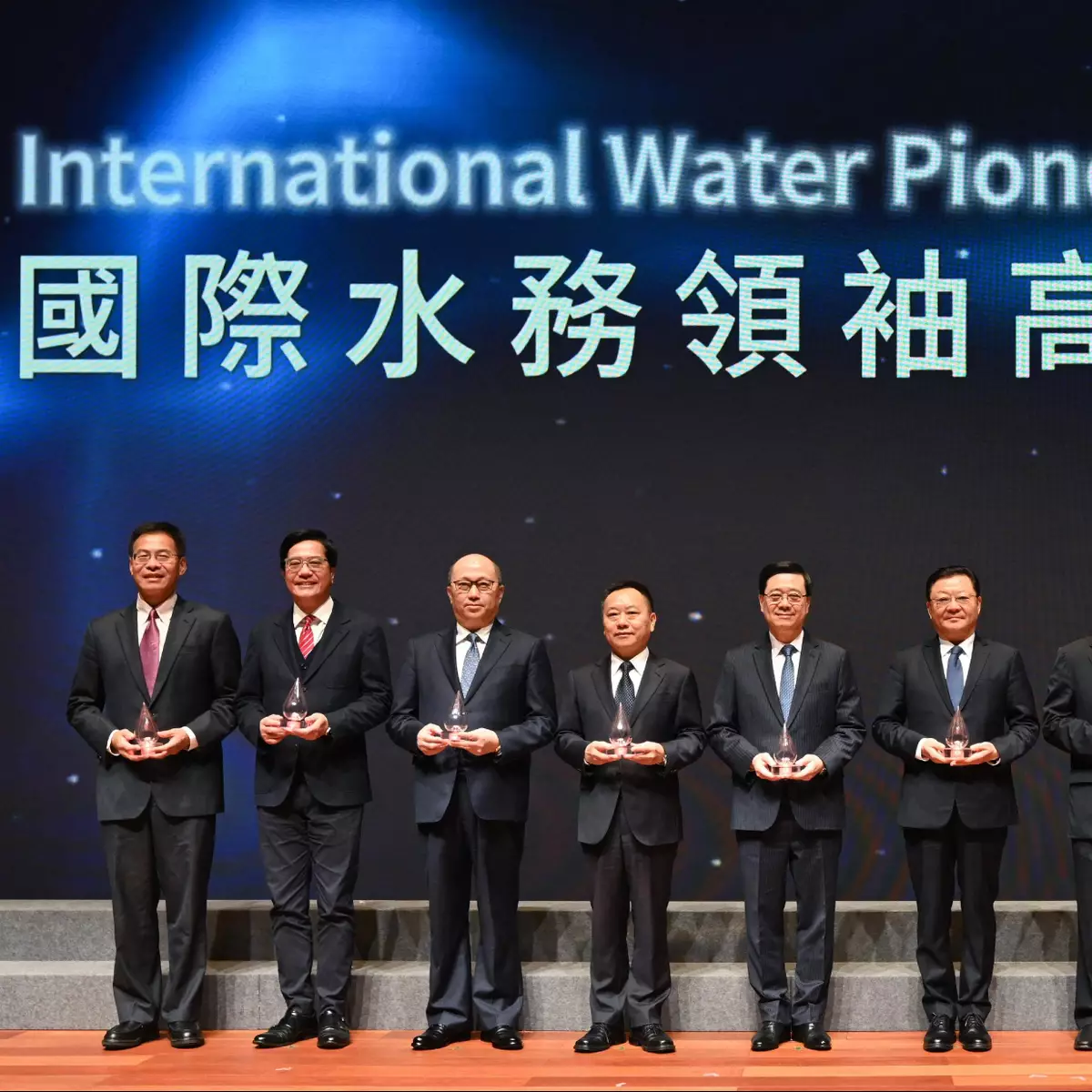
Speech by CE at International Water Pioneers Summit Source: HKSAR Government Press Releases
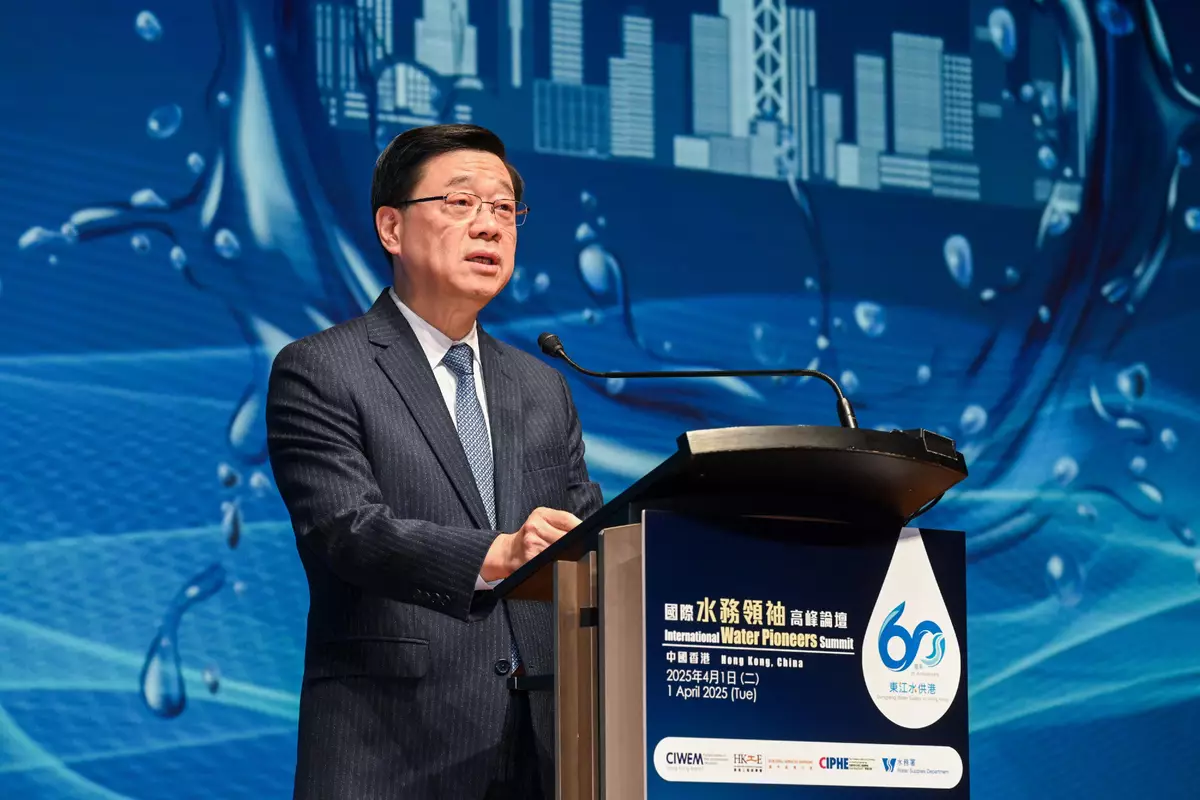
Speech by CE at International Water Pioneers Summit Source: HKSAR Government Press Releases


